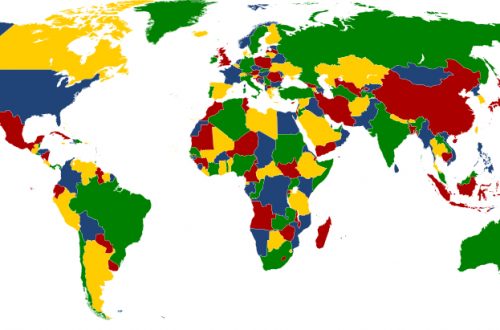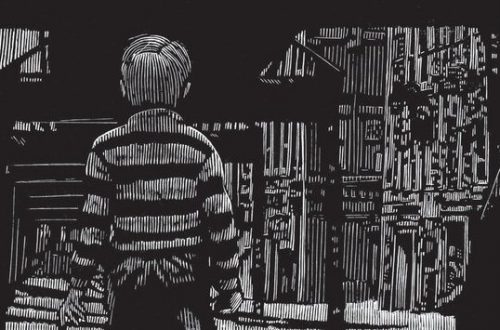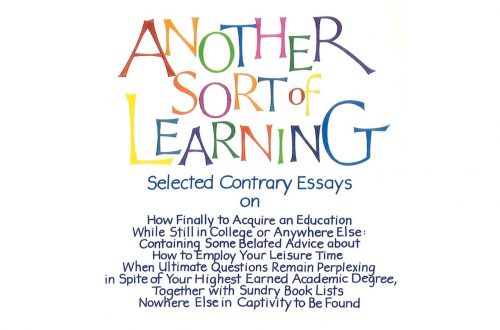a conversation with Dr. Gwen Adams
What do Women’s Care Centers, a Minnesota coffee shop with a chapel, an Americana band, lively summer camps, and a network of rescue houses for victims of human trafficking have in common? They are all ventures featured in a new book by Dr. Gwen Adams, a writer and speaker whose work explores theology in the everyday realities of life. By an Unexpected Way: Stories of the New Evangelization confronts a critical question faced by committed Christians over the centuries: What is the appropriate response to the ills of society—to withdraw or to engage?
We sat down to talk with Dr. Adams about this question.
Veritas Journal: Why is it so urgent for you to tell these stories right now at this point in history, for where Christians are at?
Dr. Gwen Adams: So, I have a couple answers. First, the book came out of a conversation I was having with a friend at a conference on The Benedict Option (by Rod Dreher). His book is one of many in this genre that’s saying, “The culture is a mess—we need to do something.” But my friend pointed out, “You know, people have been doing something—for decades! There are a lot of people doing things without asking for a lot of attention or press.” One of his examples was the work of Women’s Care Centers. It’s kind of crazy that there are so many places around the country where you can go in and get free diapers and vitamins and counseling and more. And those just kind of sprang up! So, that’s the historical reason that the book idea came about.
Why it ended up mattering so much to me personally is because of the mental health crisis that seems to be plaguing our nation. I see it in our churches, I definitely see it in our schools. It’s just everywhere, and has so many causes. But what I see particularly is how it impacts people’s relationship with God. I see a lot of people who struggle to believe they’re loveable when they read anything connected to Jesus. Or they go to church, especially younger people, and they don’t feel inspired. They feel as if they are lacking, inadequate. There is a lot of brokenness preventing people from relating to Christ. Since the people I interviewed were broken people, they don’t have high connections. They would get nervous, they would say: “I was terrified, I was scared, I just felt so sick.” I thought: “This is great! That’s exactly what you want to hear. This is not Dale Carnegie’s How to Win Friends and Influence People or some ‘leadership program’!”
The apostles were broken people too.
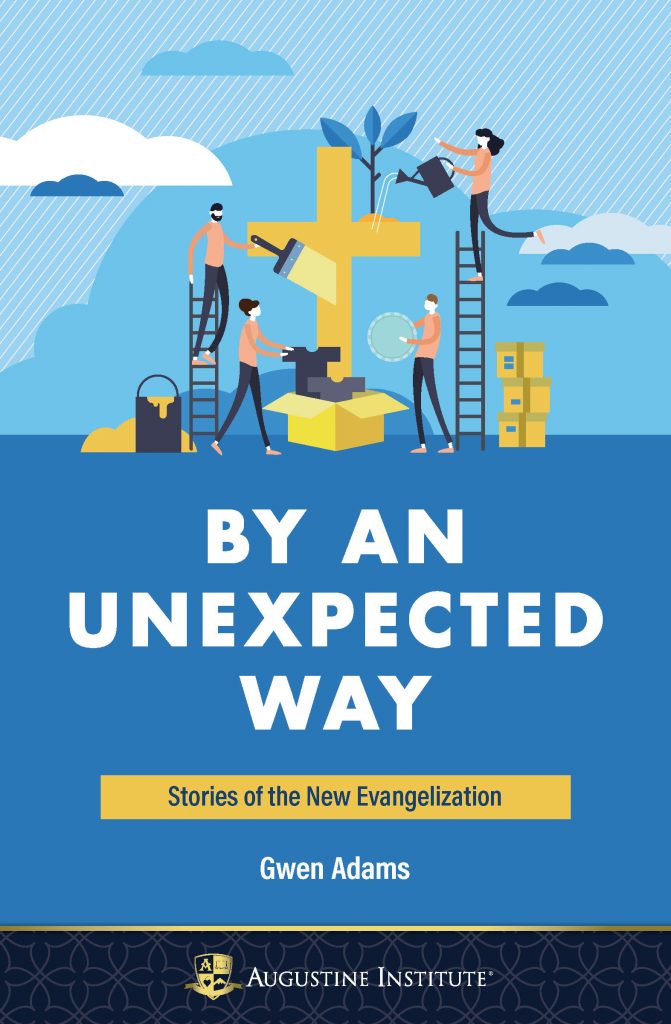
Did you go into this project asking how Christians should “engage with the world?”
That is the question I went in with writing the book. But as I interviewed people, I got a more nuanced response. It’s neither “engage” nor “retreat.” It’s . . . follow the Lord. That means that some people may be called to engage a lot. Others may be called along a path that looks like retreat, because they don’t have any obvious way of engaging. The people I interviewed didn’t really talk about “engaging or not engaging the culture” or “saving or not saving the culture.” It was all about a relationship with God. It was a completely different framework for living out faith.
Is “following the Lord” what you mean by “docility to the Holy Spirit”?
Yes. I stole that phrase from John Paul II. He wrote a piece on evangelization and being a missionary in which he gave three points for what missionary spirituality would look like. And I thought, “That’s a way I could frame the stories and kind of help people draw out what they were saying. This is actually how the people are living!”
Docility to the Holy Spirit looks like following God’s lead one step at a time, rather than having a big plan for what you think the culture needs.
Are you saying that participation in the “New Evangelization” is less about coming up with some program, and more about something else less definable?
Right. There are a lot of books written out there that claim we need a program for evangelization, and I am entering that dialogue. But as I interviewed people, I found that they don’t think of it like that at all. They didn’t wake up and say: “There are so many problems, what can I do?” They were people who loved God and were growing in their faith life. Sometimes they were presented with a problem. Sometimes they had a passion for something already. Either way, whatever they did grew out of their relationship with God. They were just trying to connect to God, and when problems came their way, they sort of looked towards God and said, “Well, what should I do—especially since I don’t know how to do this? I don’t even know if this is my ‘mission’.”
So, without a program, they followed one step at a time. Very few of them had any idea of what this would look like in the end.
Did you come across anything in their stories that really surprised you?
I was surprised and pleased by how much they did not know what they were doing. (Laughs.) Some of these people are very experienced, famous writers, honorary doctorates, so talented and so great. And then they start telling stories like: “I was afraid I was gonna lose my job!” These people are weak people. It was very consoling to me because my own project (of collecting these stories and writing the book) was way bigger than I anticipated, with all kinds of challenges I could not have perceived.
Who do you see as your audience?
I would say my audience are people a lot like the people I interviewed: people who have some kind of relationship with God, who would like to do something beautiful in this world, but who don’t necessarily have a clear idea. They are not angry people. (“We need to fix things!”). I think they’re people who are fairly aware of their own inadequacies and their dependence on God. I think there are a lot of people like that who would like to do something beautiful for God, but they have no idea where to start. So, when I’ve been talking to people about the book, they are hungry to draw close to God and they want to do something with him, but they don’t know how. I’m hoping people will read these stories and realize they don’t need to know how!
Is this kind of mission primarily a Catholic concern, or are you trying to inspire a broader group of Christians with these stories?
I would say that I was writing for a Catholic audience, so I was not even expecting other Christians to read it. It surprised me a bit, but it seems to be having a broader appeal. I did not set out to find Christians working from a variety of faith backgrounds to interview. It just happened! So, without bringing together an “ecumenical task force,” it just happened because people prayed and loved Jesus. This is really cool! It can happen really naturally—they played music together, held town hall meetings together, etc.
Some of the people in the book are creating a clearly religious space in a secular world, like a parish or a coffee shop with a chapel. Then you have people ministering to the survivors of human trafficking who say, “We’re religious, but we’re serving everyone. You can be from any background, and they have no requirements—you just get help.” And then there’s the music group. They don’t do anything except talk to people and have friendships. So there’s a range in encountering the secular world, from completely religious to being willing to enter the secular world with a relationship with Christ. There’s not a right or wrong way to do it.
Maybe that’s why the “engagement with the world” question just breaks down?
Right! Because, I went in thinking it’s going to be like this, and actually it really depends on the person and their relationship with Christ. There are so many needs and everyone is so unique. The missions are given as gifts.
Finally, are there any particular writers or thinkers you were inspired by?
Well, I’m a huge fan of A Grief Observed, by C.S. Lewis. There’s a line in there when he’s trying to deal with Joy’s (his wife’s) death. It sounds terrible, but it actually was really helpful. He writes, “What I see is not how things are.” There are times when all you can see is darkness, like God is punishing you or he hates you or he doesn’t want us to be happy. Or maybe there isn’t a God—dark thoughts. But Lewis was helped by this other thought: “Wait, I make mistakes. I make mistakes! What I see is not how things are. I forget things, I lose things.”
Like the people in the book, I’m just going one step at a time.
You can purchase By an Unexpected Way: Stories of the New Evangelization at Amazon or at the Augustine Institute website.
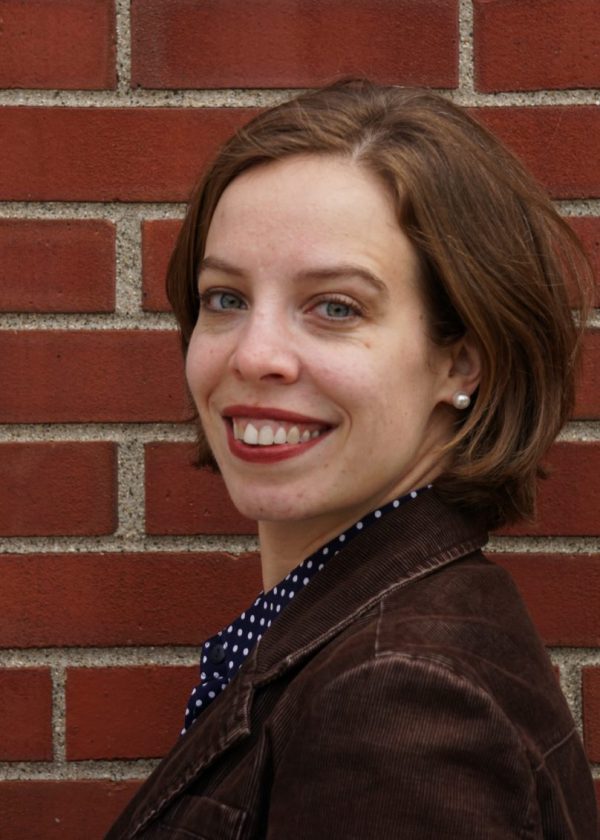
Dr. Gwen Adams is a writer, speaker, visiting professor of Theology at the Augustine Institute in Denver, Colorado, and the founder of Bardstreet, offering youth theater camps and other ventures. She is current a writer-in-residence at St. Boniface Church in Lafayette, Indiana.
Header image: Jon Balsbaugh



